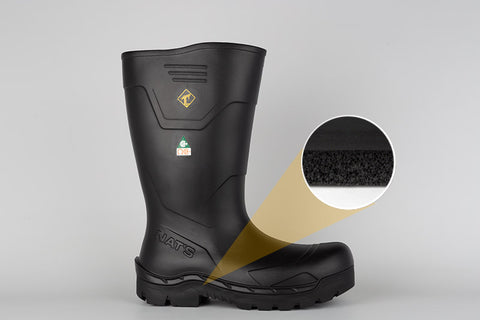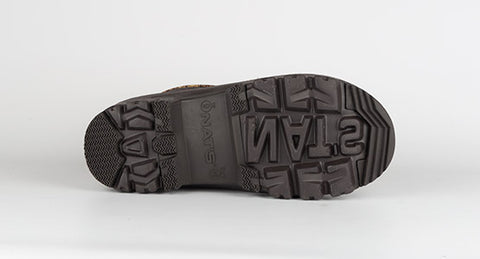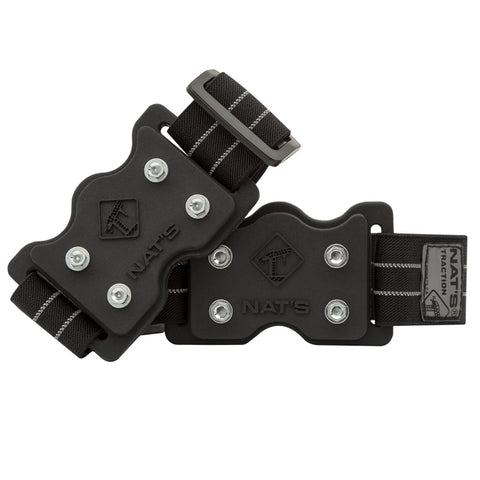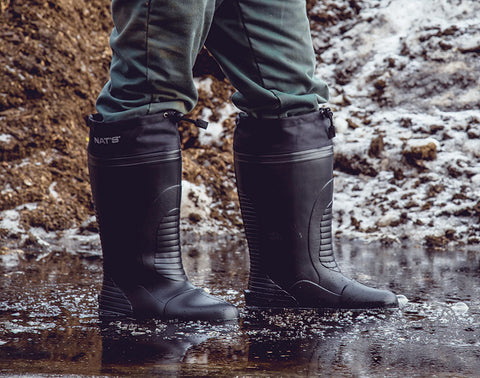Fall is here, and it’s already time to start thinking about your winter boots to deal with the cold, snowy weather. Choosing the right pair of winter boots can be a real challenge for some, especially if you live in a place with pretty cold temperatures. Choosing function over fashion is often the question, but what if you could have both? Here are some criteria to consider before you start shopping.
How to make sure your men’s winter boots are comfortable?

When you start looking for the pair of your dreams to keep your feet warm during the coldest season of the year, it is important to keep in mind that one of the criteria that determines this choice is their use. Are you looking for a pair to wear daily? Or a pair suitable for hiking or snowmobiling?
The reason for these questions is that these two pairs are very different. While one is for light outdoor use, the other is thicker for outdoor activities. In both cases, it is crucial that the pair be comfortable.
To ensure that your boots are comfortable, you can pay attention to the weight of the sole, which accounts for a large portion of the total weight. That being said, we recommend soles like the Eva sole used for men’s and women’s winter boots at Nats. Molded in one piece, EVA has no seams and is therefore 100% waterproof offering high thermal efficiency and excellent shock and vibration dampening properties, while being lightweight.
If you plan to use your boots for activities, it is necessary to consider a pair high enough to support your ankle along the activity in order to remain comfortable.
How do you know if your winter boots are warm?
Warmth
To cope with cold temperatures, the first thing to look for when looking for your next winter boot is warmth. You need to pay pretty close attention to this feature for your own safety. The temperature can range from -10 degrees Celsius or less to -85 degrees Celsius like for the R917, it all depends on the usage.
So if you’re looking for lightweight winter boots to go to work, walk around town or even go out to dinner, you probably don’t want to opt for the -85 ones, as you don’t want to end up with hot, sweaty feet triggering the cold cycle.
That being said, it’s important to choose the right heat level for your needs. To do this, temperature ratings can be used as a comparison to make the right choice. To get the most out of your winter boots, make sure you wear the right socks. The quality of the socks is as important as the quality of your pair. Their main purpose is to absorb moisture and preserve heat.
You can invest in socks made of merino wool, alpaca or synthetic material.
This brings us to another criterion, the lining.
Lining
What are winter boots without a good lining? The lining can be fleece, fur, sheepskin or synthetic materials also known as PrimaLoft or Thinsulate. All are designed to serve one purpose, keeping your feet warm. What you need to know about insulation is that it depends on your activity level. If you move or walk a lot, it’s best to choose a pair with moderate insulation so that your feet don’t sweat too much and breathe properly. Sheepskin lining is a good option for this purpose.
On the other hand, if you plan to use your winter shoes for hiking, or snowshoeing, synthetic materials are preferred in this case to offer you maximum warmth. Synthetic linings, often used for sports activities, are designed to be as light as possible.
The degree of insulation of synthetic materials is measured in grams and is usually indicated on the boot label. Below are the most common insulation levels on the market:
100 g: light insulation. Often used in the fall
200 g: medium insulation, sufficient for most daily winter activities (short walks, excursions, outings, etc.)
400 g: high insulation for long outdoor activities or extremely cold days.
There are also winter boots with a removable lining. These are ideal for fitting one pair for all activities. That being said, the removable liner can be removed if you are warm, or it can be removed to dry and easily reinserted into your boots.
At Nats, for example, we offer winter boots for men and women that are both waterproof, with a removable liner, a foam liner with up to 400g Primaloft insulation, and a self-cleaning traction sole.

What are the types of soles for winter boots?
Have you ever slipped a foot on your way out of your house because of a snowy or icy surface? It happened to all of us! While it’s fun at one time, these slips are quite dangerous. So the sole is one of the most important criteria for choosing the right pair of winter boots. Again, the type of accessory, whether it’s a regular or a grip sole, depends greatly on your needs. But one thing is for sure, a good quality sole can prevent you from slipping every time you step out of your house.
EVA soles
EVA is an antimicrobian material resistant to oil and animal waste. This ultra light self-insulating foam used at Nat’s protects against cold and wetness and provides full insulation from the ground.
One piece molded, EVA has no seal and, therefore, is 100% waterproof. Filled with thousands of microscopic air bubbles, EVA material is providing high thermal efficiency and excellent cushioning properties.

Thick rubber soles
The thicker the sole, the warmer your feet will stay. So you need to pay pretty close attention to this, because no matter how warm your boots are, if the sole isn’t quality, you’re likely to get cold.
Therefore, thick rubber soles are ideal to avoid any unpleasant situation. On the market, you can find notched soles often used for light activities. This type of sole has small studs that provide ideal traction.
Fold-out soles
If you don’t consider yourself to be too stable on icy surfaces, opt for soles with folding cleats for added safety. These cleats are known to be anti-slip par excellence. However, it is important to keep in mind that they should not be used all the time. Therefore, there are many winter boots with removable snow grabbers that allow you to use them or not depending on your needs.

Arctic Grip Sole
Arctic Grip winter boots are considered the most technologically advanced winter boots available. They are designed to be worn on a variety of surfaces: hard packed snow, icy surfaces, wet surfaces and more. So, if you are not comfortable with handling cleats every time, you may want to consider buying winter boots with this type of sole as they are primarily designed to provide maximum traction, especially on slippery surfaces.
Heated soles
Do you consider yourself a chilly person? Here’s our solution. Heated insoles. However, if you’re considering using them, it’s important to consider the space it will take up. These insoles are often battery operated, and will help warm your feet when the temperature gets extremely cold.
How do I know if my winter boots are suitable for snowmobiling?
Waterproofing
Are your winter boots waterproof or just water resistant? It is necessary to distinguish the difference between the two in order to avoid freezing your feet, especially for activities such as snowmobile. If your pair is only water resistant, it will prevent water penetration, but only to a certain level. So make sure your pair is waterproof.

Your winter boots may be warm, with a quality lining and sole, but if water gets in, you’ll lose all the warmth.
How to choose the right size for your winter boots?
During the winter season, put style and trend aside. Think beyond the look. That being said, don’t choose boots that fit exactly because you’ll get blisters all over. It’s important to choose winter boots that are comfortable, such as the R900, not too small and not too big either, to promote blood circulation and allow for good posture when walking.
Tip #1: Try on your winter boots before shopping with different types of socks, thin or thick, to help you choose the right size.
Tip #2: Measure your feet to validate your size with the size guide. The tighter your winter boots are, the colder you will feel because your blood circulation will not be optimal.
And there you go! Buying winter boots is no longer a secret for you. By taking into account the criteria mentioned below, you can be sure to spend a winter safe from the cold. However, keep in mind that the evaluation of these criteria may vary from person to person. Some people are chilly and tend to be very cold, while for others, it is quite the opposite. So, when buying your pair, first make reference to your needs to choose the perfect boots.
